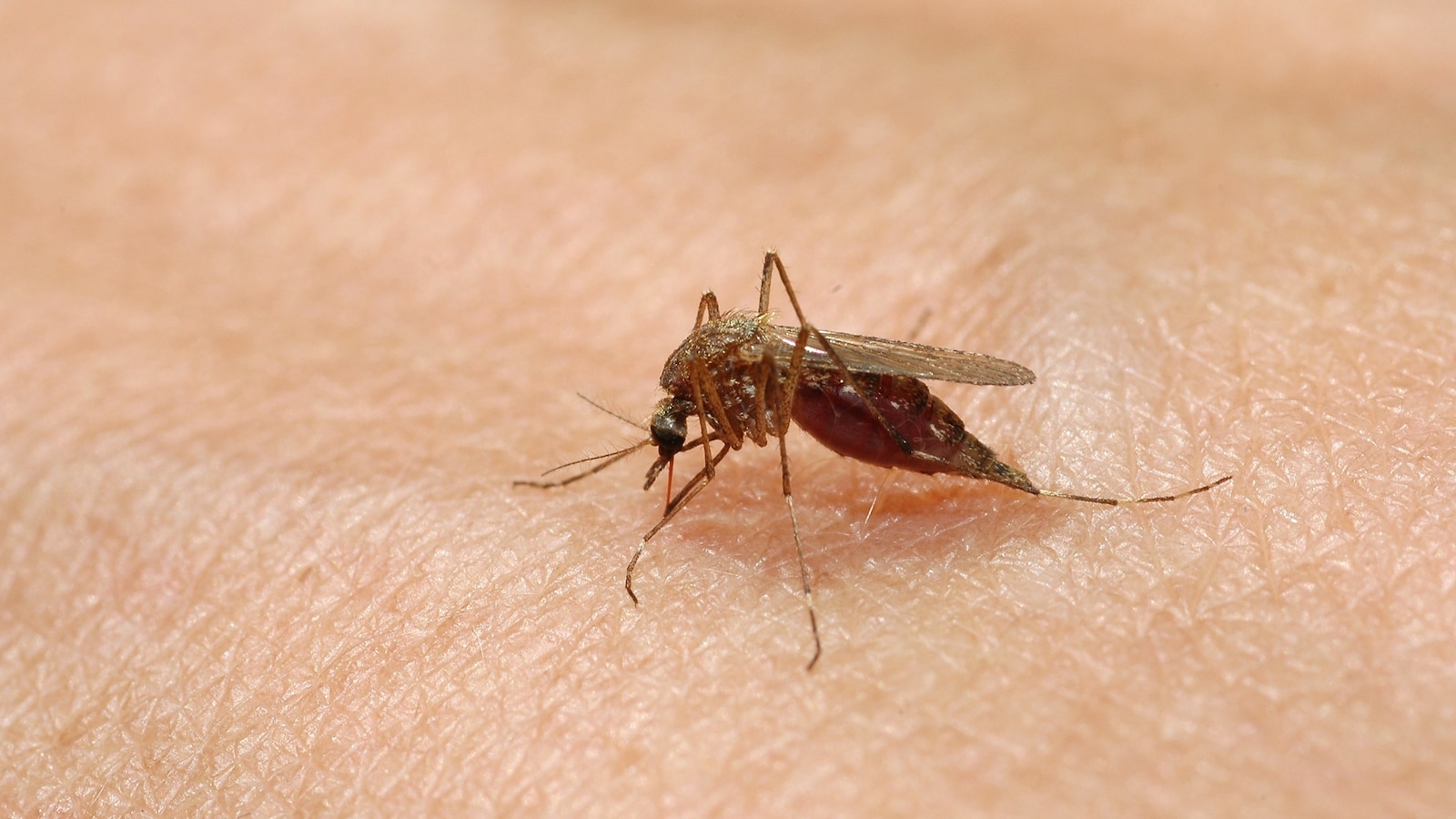Texas public health officials announced on Monday the first locally acquired case of dengue virus of the year was reported in a Cameron County resident.
There have been 106 travel-associated dengue cases, including one death reported in Texas, officials said in a press release, noting this is the highest annual case count in Texas since 2002.
Locally acquired cases mean that the people infected have no history of traveling to an area where dengue normally spreads.
Local dengue transmission is typically common in tropical and subtropical areas of the world — including Florida and U.S. territories in the Caribbean.
Dengue virus is a mosquito-transmitted illness and about 25% of infected individuals become symptomatic.
The most common symptom is a fever with aches and pains, nausea, vomiting and rashes. Symptoms usually begin within two weeks after being bitten by an infected mosquito and last between two and seven days. Most people recover after about a week.

Mosquito biting a person’s skin.
STOCK PHOTO/Adobe Stock
The best way to prevent dengue is to avoid mosquito bites, according to the CDC.
While Texas is reporting its first locally acquired case of dengue this year, there have been at least 4,962 cases nationally of locally acquired dengue so far this year, according to CDC data. Last year, Texas also reported one locally acquired case.
The bulk of these local cases are in Puerto Rico. California has also reported 15 and Florida has reported 53 local cases.
There has been over triple the number of locally acquired dengue cases so far this year nationally compared to the entirety last year.
The CDC issued a health alert in June warning health care providers of an increased risk of dengue virus infection this year. Globally, new cases of dengue have been the highest on record, according to the CDC. They agency also noted that cases are likely to increase as global temperatures increase.
The CDC issued a health alert in June warning health care providers of an increased risk of dengue virus infection this year. Globally, new cases of dengue have been the highest on record, according to the CDC. They agency also noted that cases are likely to increase as global temperatures increase.
Texas health officials warned that mosquitoes remain active in much of the state into November and December.

